Installing a hitch on your minivan might be an excellent way to increase its versatility and use.
But how much does a minivan hitch cost to install?
And what are the advantages?
In this article, we’ll look at the cost of installing a hitch as well as some of the advantages you may expect.
Continue reading to discover more!
How Much Does It Cost To Install A Hitch On A Minivan?
Installing a basic class I or class II hitch on a minivan typically costs between $100 and $400.
However, more advanced hitches that offer additional features such as weight ratings or anti-rattle devices may cost more, ranging anywhere from $500 to $1000 or more.
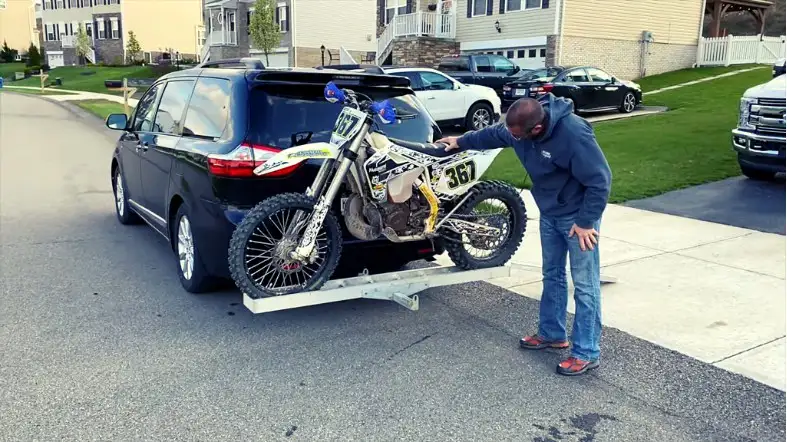
You can often find cheaper prices at certain auto shops, or if you install it yourself.
| Purchase | Cost |
|---|---|
| Tow hitch | $100-$300 |
| Installation | $100-$500 |
| Other parts and accessories | $50-$200 |
Factors That Can Affect The Cost Of Installing A Hitch On A Minivan:
- Type of hitch being installed
- Size of hitch and vehicle
- Location of installation (local garage vs. specialized shop).
- Type of installation required (bolt-on vs. custom fabrication).
- Quality of materials used for the installation.
Type of hitch being installed
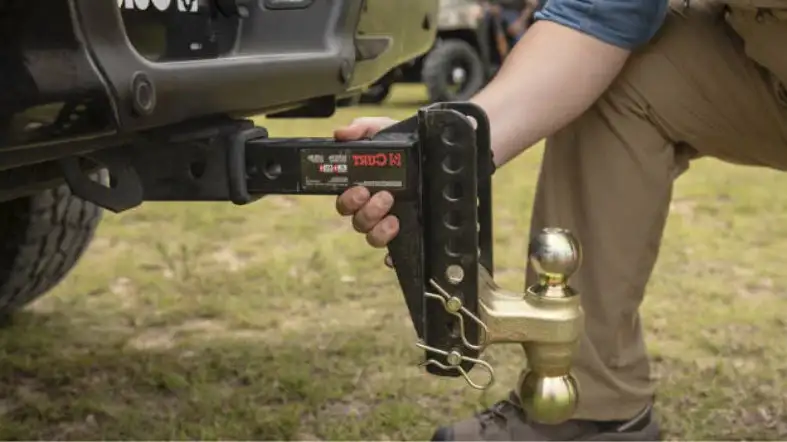
The type of hitch being installed can have a major impact on the overall cost of the installation.
Simple, standard hitches, such as class I and II hitches, are typically less expensive than more advanced hitches, such as class III and IV hitches.
Additionally, custom or specialty hitches may also cost more due to their unique design or specialized materials.
Size of hitch and vehicle
The size of the hitch and the vehicle can also affect the cost of installation.
For example, larger hitches typically require more materials, labor, and expertise to install than smaller hitches.
Similarly, installing a hitch on a larger minivan can be more challenging and therefore may cost more than installing a hitch on a smaller minivan.
Location of installation
The location of the installation can also affect the cost of installing a hitch on a minivan.
For example, if you are having the installation done at a local garage or repair shop, costs may be lower compared to hiring an experienced specialist to install your hitch.
Additionally, certain locations may be more expensive for installation, such as large cities or areas with high labor costs.
Type of installation required
The type of installation required can also affect the cost of installing a hitch on a minivan.
For example, if you need to have your vehicle custom fabricated in order to install the hitch, this may cost more than simply bolting the hitch onto your vehicle.
Similarly, if you need to use specialized tools or expertise for the installation, this may increase the cost as well.
Quality of materials used
The quality of materials used for installation is another factor that can affect the overall cost of installing a hitch on a minivan.
For example, if you choose to use high-quality, durable materials for your installation, this may cost more than using cheaper, lower-quality materials.
Additionally, if you need to have the hitch professionally painted or coated after installation, this can add to the overall cost as well.
What Are The Benefits Of Installing A Hitch On A Minivan?
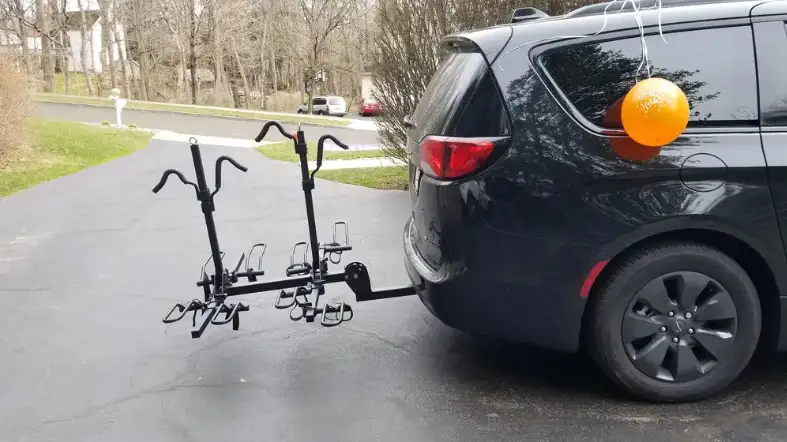
There are a number of benefits to installing a hitch on your minivan.
Here is a list of a few of these benefits:
- Increased cargo capacity and flexibility
- Better towing capabilities
- More convenient and secure storage
- Increased safety when towing or hauling heavy loads
- Increased fuel efficiency when not towing or hauling
- Easier loading and unloading of cargo
- Higher resale value for your vehicle
Increased cargo capacity and flexibility
Installing a hitch on your minivan will give you increased cargo capacity and flexibility, which means that you can haul heavier loads and tow trailers more easily.
You will have a lot more space in the back of your vehicle to store large items, whether they are camping gear or other materials for work or home.
And because a hitch allows you to tow trailers, you have more options when it comes to transporting large items or enjoying outdoor activities like camping and biking.
Better towing capabilities
Installing a hitch on your minivan also gives you better towing capabilities, which means that you can easily haul boats and other recreational vehicles.
Whether you are planning a weekend camping trip or a road trip with the family, having a hitch allows you to take all of your gear with you without struggling to find room in the back of the vehicle.
More convenient and secure storage
Another benefit of installing a hitch on your minivan is that it provides you with more convenient and secure storage options.
You can easily store items like bikes, sports equipment, or coolers in the back of your minivan without worrying about them rolling around or getting damaged.
And because the hitch is securely attached to your vehicle, you don’t need to worry about thieves trying to steal your belongings.
Increased Safety When Towing Or Hauling Heavy Loads
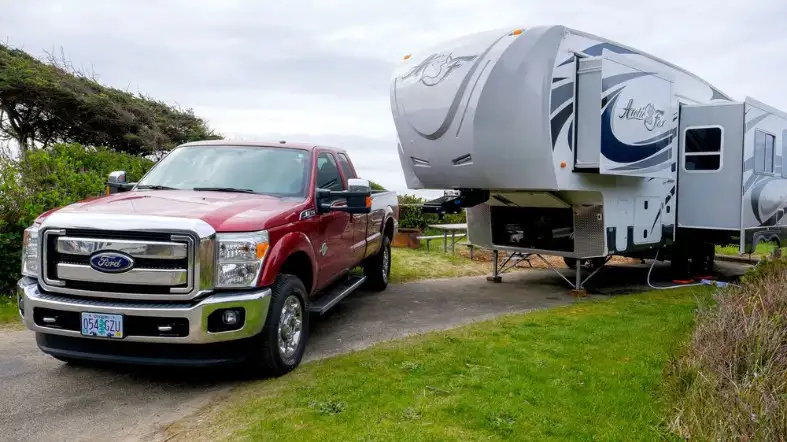
Installing a hitch on your minivan can help you improve the safety and capability of your vehicle.
A tow hitch is not just for towing trailers or pulling heavy loads; it also provides additional support in emergency situations when you need to apply extra force to slow down or stop quickly.
By installing a tow hitch on your van, you will be able to use it more effectively and avoid damaging the suspension or transmission over time.
If you regularly haul heavy items in your van, then installing a tow hitch is essential for ensuring that everything stays secure during transit.
Unlike standard cargo carriers, tow hitches are specifically designed to handle large amounts of weight without putting too much strain on the vehicle’s undercarriage.
Increased fuel efficiency when not towing or hauling
Installing a hitch on your minivan can help improve fuel efficiency by reducing wind resistance when you are not towing or hauling cargo.
This can save you money on gas over time, and also reduce wear and tear on your vehicle.
Additionally, many hitches come with additional features such as load-leveling systems that automatically adjust the height of your load as you drive, helping to maintain optimal aerodynamics at all times.
So if you’re looking for ways to improve fuel economy and get more out of your minivan, installing a hitch is an excellent choice.
Easier loading and unloading of cargo
A hitch can also make it easier to load and unload cargo in your van, as you won’t need to worry about lifting heavy items into the back of your vehicle.
Whether you are transporting furniture, sporting equipment, or gardening supplies, a hitch can make loading and unload much easier and more convenient.
And if you have a van that can carry large items like refrigerators or washing machines, then installing a hitch is essential to make sure they fit securely in the back of your vehicle.
Higher resale value for your vehicle
Installing a hitch on your minivan can help boost its resale value by increasing its functionality and utility.
A hitch allows you to easily attach bike racks, cargo carriers, and other accessories, making it a must-have feature for anyone looking to get the most out of their vehicle.
Additionally, having a hitch installed can be beneficial if you plan on eventually selling or trading in your minivan, as many buyers will look for this feature when considering purchasing a used van.
So if you’re thinking about upgrading your vehicle in the future, investing in a hitch now could pay off in the long run.
What Procedures Should Be Followed While Attaching A Hitch To A Minivan?
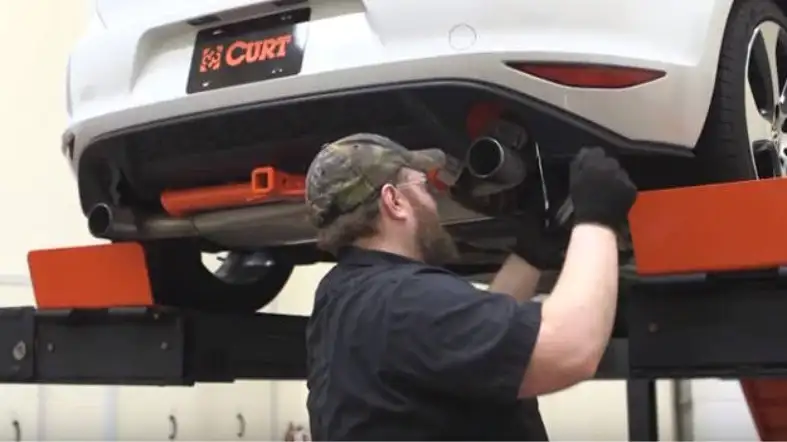
To install a hitch, you must: -Review the instruction instructions
Read every piece of information in your installation kit very minivan fully.
You will be able to avoid any further hassles by following all the doings and don’ts, which will give you confidence in the process.
Prepare your tools
Make sure you have everything you need or go to the hardware shop to purchase the essential tools in advance.
Examine the lighting
If it’s a sunny day when you decide to work on adding a hitch, you may not require special lighting equipment.
In any case, a flashlight is suggested.
Otherwise, you can put up the necessary lights if you labor at night or in a dark garage.
Remove The Bolts And Other Required Components.
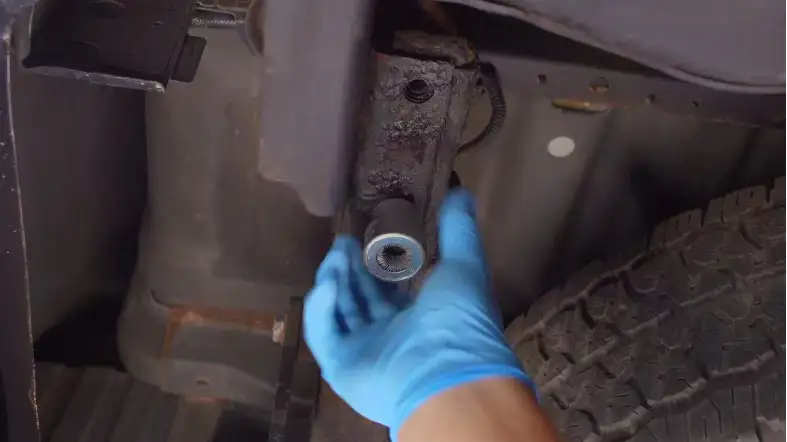
It is recommended to remove the spare tire from underneath your minivan in order to make room for the hitch and the frame.
In accordance with the instructions, take out the mounting bolts and, if required, lower the exhaust pipe.
Connect the hitch
Accurately place the hitch in relation to the other machinery.
Having a second person is a good idea since the frame you are installing could be hefty and you might need help with the proper alignment.
You are ready to bolt it in after everything is in position.
Tighten bolts
Make sure you don’t miss any bolts because doing so might be quite risky.
Make sure that each bolt you use has been checked twice so that the hitch won’t come off by itself.
After completing all these procedures, your hitch should be appropriately placed, allowing you to quickly attach your trailer or bike rack!
FAQS about Hitch Installation on a minivan
How Costly Is It To Have A Hitch Installed On A Minivan?
The cost of having a hitch installed on a minivan can vary depending on the car’s make and model and the installation’s difficulty.
However, you can expect to pay around $200-$400 for professional installation.
How Much Time Is Required To Attach A Hitch To A Minivan?
It typically takes around 1-2 hours to install a hitch on a minivan.
However, this can vary depending on your minivan’s make and model and the installation’s difficulty.
Can I Install A Hitch On A Minivan Myself?
You can install a hitch on a minivan yourself if you’re skilled and have experience with auto repair.
The bottom lines
Now you know the answer to the question “How much does it cost to install a hitch on a minivan?”
The cost of installing a hitch on a minivan can vary depending on several factors, including the type and size of the hitch you are installing, as well as the make and model of your vehicle.
Generally speaking, you can expect to pay anywhere from $100-$800 for installation services.
If you are looking for more specialized or customized equipment, such as a bike rack or cargo carrier, this may increase the overall cost slightly.
